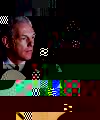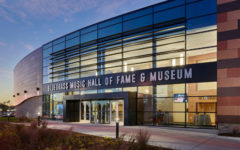This post is a contribution from David McCarty, a music journalist, songwriter and musician who writes regularly for Bluegrass Unlimited and Flatpicking Guitar magazines, and performs as a member of The Hot Club of Naptown. Your comments are welcome – agree or disagree.
 After seeing the recent AP story of a low-rent Tucson bar owner sued by ASCAP for $210,000 for failing to obtain a license to perform copyright protected material, I am convinced something needs to be done to restore a sense of order and fairness in the world of performance rights. Too many small bars, coffee houses, restaurants and other venues have given up hosting live music due to onerous licensing fees, which do not directly benefit the musicians whose music is being covered since these fees are paid to all members according to a formula based on overall record sales – not the individual copyright holder whose creative work was performed or exhibited.
After seeing the recent AP story of a low-rent Tucson bar owner sued by ASCAP for $210,000 for failing to obtain a license to perform copyright protected material, I am convinced something needs to be done to restore a sense of order and fairness in the world of performance rights. Too many small bars, coffee houses, restaurants and other venues have given up hosting live music due to onerous licensing fees, which do not directly benefit the musicians whose music is being covered since these fees are paid to all members according to a formula based on overall record sales – not the individual copyright holder whose creative work was performed or exhibited.
Without those incubator sites, where will future generations of musicians find a fan base and learn to entertain a live crowd, discover what material stirs their souls, and learn to discern the subtle differences between hot licks and true music? Without just, equitable payments based on actual popularity of a copyrighted work, how can the artists creating it survive and create even more?
The answer, I believe, must come from within our own industry. Each musician must stand up and say that without venues where new talent can grow and develop, without fear of onerous copyright fees and performance royalties, music as a commercial activity cannot survive in a digital age. It is the songwriters and copyright holders themselves who own ASCAP, BMI and related groups, and it is up to them to lay down the law and say that without a fair, equitable means of establishing exactly what copyright-protected music is being performed with direct compensation to the individual copyright holder, then no fees should be collected. And the same holds true for digital downloads, file sharing and other means of digital distribution.
Of course, the very same debate rages across all areas of creative expression in today’s online environment. Every artist, I believe, will eventually have to become their own agent, copyright enforcer, distributor, promoter and collection agent to survive in this new era. Great opportunities exist, I am certain, for new business models to arise that pay musicians, graphic artists, writers, photographers and other creatives on a per-user basis based on unique visits to websites, downloads, file sharing fees, one-time licensing fees and other financial mechanisms that allow the audiences who are enriched by the genius of an individual human mind to provide the financial support that makes such creative endeavors possible. Create a digital watermark, for example, so that each time it appears on screen, on iTunes or an mp3 player, is used as a ringtone or whatever means of digital utilization can be imagined, a fair fee automatically goes to the originator. If you’re looking for the next Google, folks, here it is.
Humanity is lost without art that expresses its collective soul and heart. Like all media revolutions starting with the first cave paintings, artists must utilize that very same creativity to ensure they are rewarded for bringing art into this often soulless and pain-ridden world. Musicians survived sheet music, player pianos, wax cylinder recordings, radio, broadcast TV, MTV, Napster and more. Surely we can develop the appropriate legal and financial tools necessary to survive ‚Äì and thrive – in an era of file sharing and “free” online content.
End of soapbox – for now.
David J. McCarty
Copyright 2007, all rights protected and reserved




